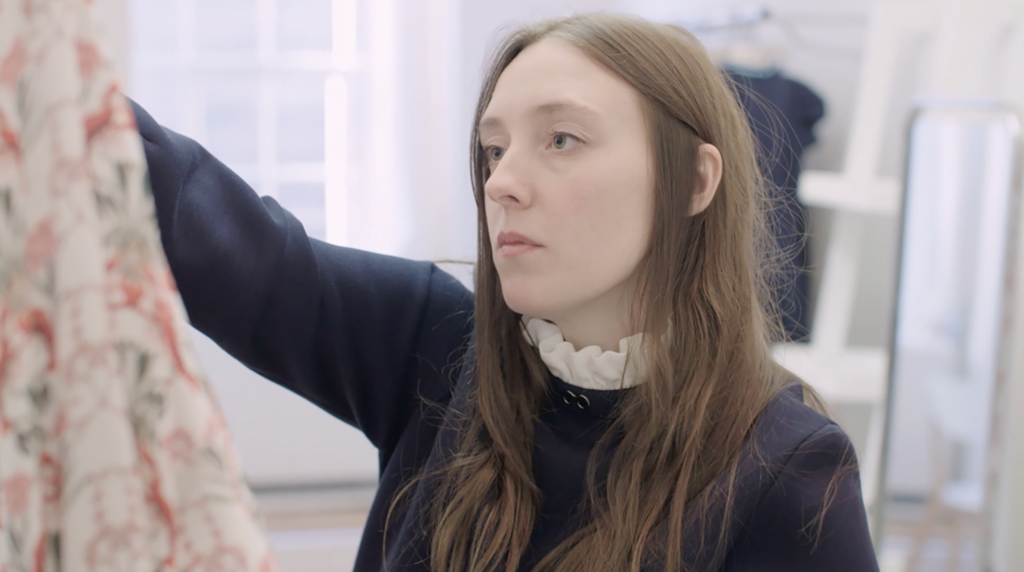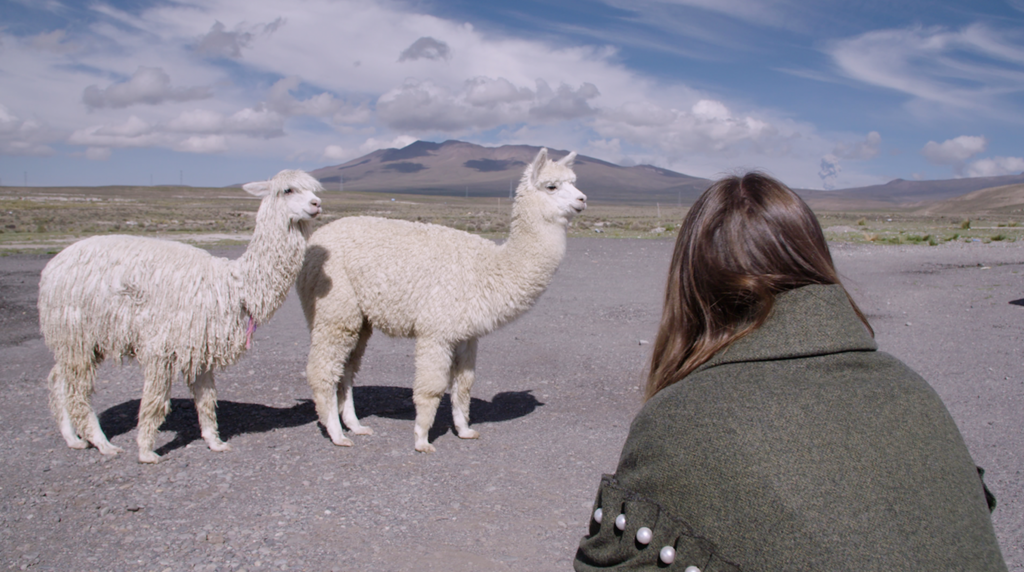Want to hear more from the actors and creators of your favorite shows and films? Subscribe to The Cinema Spot on YouTube for all of our upcoming interviews!
Zero time Tony Award winner • Production Assistant • Serial rewatcher
If the fashion industry were a country, it would rank third for carbon emissions after China and the United States. The power of fashion is assertive and fuels creativity and self-expression, but there are some hidden dangers of being too fashion-forward. Fashion Reimagined takes you on a sustainability journey with designer Amy Powney at the forefront.
Who is Amy Powney?
Amy Powney grew up in the north of England. When her parents decided to move to a piece of land, they lived in a caravan where there was no water, electricity, or heating. As the backdrop to her childhood, this lifestyle paved the way for her interest in sustainability. Bullying, due to her family’s non-materialistic lifestyle, followed Amy to high school. After saving her money and buying a pair of Reebok trainers, Amy understood the power fashion could have on people.
Amy’s dream of being a fashion designer came with a huge responsibility, and the pressure to create something beautiful and sustainable wasn’t going to be easy. She stresses that “fashion spans so many environmental issues. The quantity that we’re producing, the waste at the end of it. Everything you create has a footprint.”
When Amy was in college, and fast fashion brands were popping up at a rapid pace, she read “No Logo: No Space, No Choice, No Jobs” by Naomi Klein. After learning the harsh reality about the people who make our clothes, Amy completely changed her mindset about the industry. Only 2% of the people who make our clothes earn a living wage, and most manufacturing occurs in foreign countries that don’t have labor laws.
What is Mother of Pearl?
Mother of Pearl is a womenswear brand in London. Designer Maia Norman founded the brand in 2002. After Amy graduated college, she started her career with them and worked to become the creative designer.

Carbon Emissions/Garment Creation
Destruction was never the goal with fast fashion. It was an inclusive way for all classes of people to be what society accepted as fashionable. It became too ahead of itself and created the fundamental problem we see today.
We buy roughly three times as many clothes as we did in 1980. Each year, approximately 100 billion clothing items are produced, and three out of five end up in a landfill before their first year of purchase. 35% of ocean microplastics come from synthetic clothes shedding in washing machines and don’t biodegrade. Decades later, they are still taking up landfill space.
The environmental impacts are detrimental even before the completion of a garment. Conventional cotton farming uses some of the most dangerous pesticides; it drives the extinction of bees and is fatal to people if inhaled. Five of the world’s top seven cotton-growing countries use child labor, and roughly 2.5 million children pick cotton a year.
“The Chain” is a term in the fashion industry that describes the garment creation process. Take a cotton shirt, for example. A huge multinational corporation engineers the GMO cotton seed. The cotton is grown via chemicals and pesticides before being harvested. Cotton is spun into yarn, and that yarn is woven into fabric. That fabric is treated with heat and chemicals to make it soft and white. More chemicals are added to dye the fabric. That material is cut and sewn into shirts. Ultimately, the warehouse receives the shirt and sends it to the consumer. A garment will travel to an average of five countries before the consumer gets it.
From Vogue to No Frills!
In 2017, the British Fashion Council and Vogue awarded Amy Powney the UK’s Top Emerging Designer award. She decided to use this money from Vogue to turn Mother of Pearl into an utterly sustainable fashion brand. It debuted at London Fashion Week in 2018 under the name “No Frills.” The mission was to make No Frills an organic, traceable line of clothing that uses minimal water and chemicals, is socially responsible, and considers animal welfare.
Searching for ethical places to source the materials did not come without difficulty. The search took Amy and Chloe to places like Pedro Otegui’s family farm in Uruguay, with impeccable animal welfare and traceable products to the origin, and Isko: a denim mill certified by the Global Organic Textile Standards (GOTS). I won’t go into too many spoilers about what happens at those places. The details take the viewer on an educational journey. Amy realized along the way that this line was less about the product itself and more about the learning process.
Buyers were not biting at Amy’s early preview. Katharine Hamnett, the UK’s first sustainable designer, and Amy discussed the reinvention of the fashion industry. The reviews at London Fashion Week were glowing for Amy’s collection. It adds momentum to the cause and signals hopeful change in the industry. A complete 180 flip from the early preview, buyers flocked to her. Her initiative has pushed other brands to follow in her footsteps.

Viewer Thoughts
Amy’s story remains realistic with a sense of hope. We’ve come a long way to make fashion more sustainable, but even today, fast fashion is still a triumphant ruler in the industry. It doesn’t just end with landfill contributions. Climate change, deforestation, and ocean microplastics are all a result. The director of Fashion Reimagined, Becky Hunter, wanted to emphasize every detail that goes into creating a single garment.
I’ve read books, written papers, and watched films on sustainability in the fashion industry. It’s an important topic, and I’m still working on making my wardrobe a more ethical capsule of clothing. There are steps that individuals can take to make these kinds of positive changes, and watching this documentary to learn more is an excellent place to start. I’m so grateful to have had the opportunity to experience this extraordinary story. Here is a link to the trailer to learn more!
Zero time Tony Award winner • Production Assistant • Serial rewatcher
This article was edited by Francesca Aloe.

